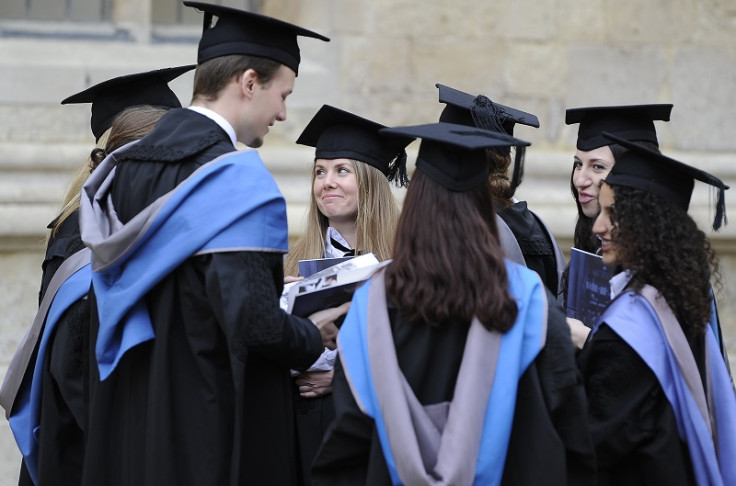Unemployment: Four in Ten UK Graduates Struggle To Find Work

Young people in the UK are still feeling the aftershocks of the recession as almost four in ten of today's graduates are looking for work six months after leaving university, new research shows.
The research also says that a quarter are still job hunting a year after they graduate.
According to recruiter Totaljobs.com, which questioned 676 graduates in December 2013, 44% of respondents said they regret not studying something more vocational.
The research also revealed that a third of graduates apply for more than 20 jobs a month (averaging one application per business day).
"Despite the economic upturn, graduates are still struggling to find work after university," said Mike Fetters, graduate director of Totaljobs.com.
He added: "Although a degree is an essential qualification for some industries, school leavers need to think more carefully about which route to employment is best for them as some may be more suited to an apprenticeship scheme."
The study also found graduates are willing to travel 35 miles on average to a job interview, with one in six (18%) stating they would travel more than 100 miles for a job interview.
Fetters continued: "Graduates need to prepare themselves for the fact that it may take them a few months longer than they thought to find the job they want."
The research comes after the Office for National Statistics (ONS) revealed the unemployment rate for 16 to 24 year olds in the UK was 20% for September to November 2013 – representing a 0.1% drop on the previous three month period.
The findings also follow a separate study which discovered Britain's top performing graduates are more likely to be attracted to working independently as a freelancer for multiple companies, than looking for a job for life with one employer.
According to jobs site Elance, which questioned 1,000 UK university leavers, freelancing is now seen as a highly attractive and lucrative career option by a vast majority (87%) of graduates with first or second class degrees – compared to 77% of those with lower class degrees.
© Copyright IBTimes 2025. All rights reserved.






















